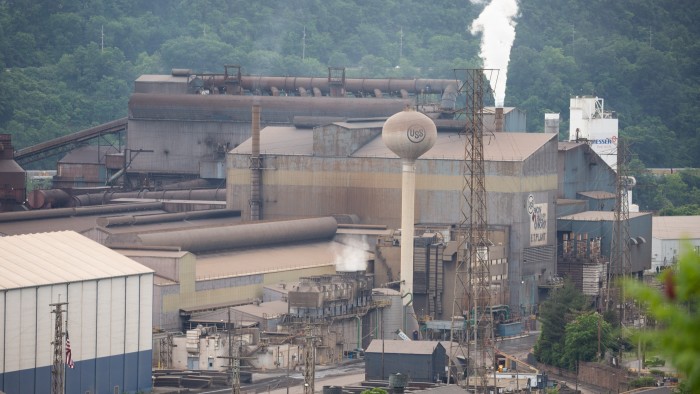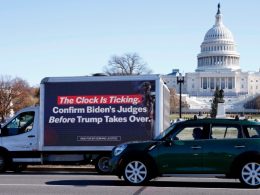Unlock the White House Watch newsletter for free
Your guide to what the 2024 US election means for Washington and the world
US Steel’s shares never hit the $55 that Nippon Steel offered to acquire the company in December 2023, in a cross-border tie-up that raised hackles of politicians and steelworkers alike. This week they were trading at around $32. So in a sense, outgoing President Joe Biden’s decision to squash the deal on national security grounds is already old news.
But there’s something new, too: a scramble to understand the rules of the road for mergers and acquisitions. Many corporate advisers had expected 2025 to be a relative fiesta, helped by the more business-friendly presidency of Donald Trump. The reality may be more intricate.
So far, the indications are that big is no longer bad, per se. The Biden administration had made no secret of its scepticism towards companies that were dominant in their field, such as Amazon. Red tape abounded: in recent years, US deals worth more than $10bn have taken twice as long to close as they did a decade ago, according to Goldman Sachs.
Trump’s tenure could see a rollback to a more simple way of viewing antitrust, focused on traditional notions of consumer welfare — and paying less attention to things like competition for employees or impact on other stakeholders. Bank of America chief Brian Moynihan and Goldman Sachs boss David Solomon have both predicted a more kindly market for M&A in 2025 thanks to the new White House occupant.
But if market power isn’t necessarily a deal-breaker, foreignness still could be. Both Biden and Trump were opposed to Nippon’s takeover of US Steel. It’s not clear that was rational: the Japanese company had offered all kinds of concessions, including nearly $100mn of bonuses for US employees and retaining the company’s headquarters in Pittsburgh. Life is no fun for a subscale steelmaker.
If Trump is suspicious of takeovers with foreign buyers, such logic is unlikely to apply to the domestic landscape. Putting America first is hard to do without nurturing — or sustaining — giant companies such as Google parent Alphabet, chipmaker Nvidia or mega-bank JPMorgan that can kick sand in the faces of foreign rivals. That in turn is difficult to do while maintaining an adversarial view of domestic corporate embiggening.
A key test will be the tech sector. Personnel changes at the top regulators — hawkish academic Lina Khan out as head of the Federal Trade Commission, for example — suggest a milder but hardly pliant approach. The new brooms may soon be put through their paces: the so-called Magnificent Seven, which include Apple, Microsoft and Facebook owner Meta Platforms, have $530bn of cash burning a hole through their balance sheets.
Meanwhile, US Steel could be a test of what happens to the losers. Homegrown rival Cleveland-Cliffs had previously expressed interest in a domestic M&A solution. Trump has suggested he can protect the company in other ways, using tariffs and taxation — interventions which make merger calculus even more slippery. Dealmaking may get more frequent in 2025 but not necessarily more simple.
Source link









